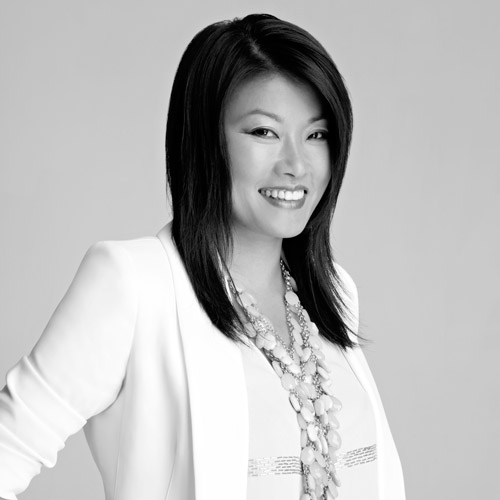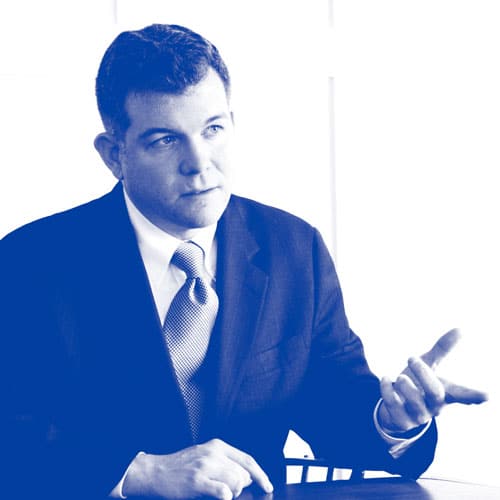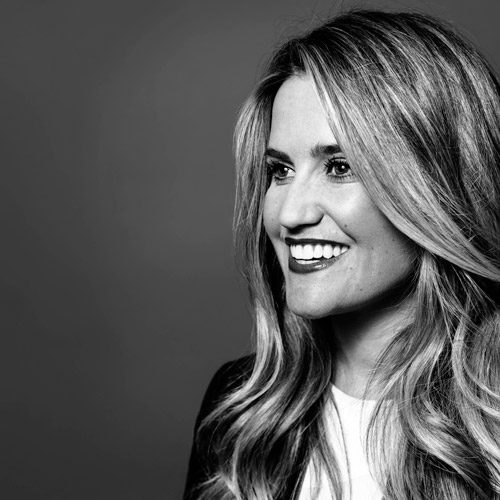In China, more than five million six- to eight-year-olds attend boarding schools. Liyuan Woo was one of them. In fact, she started when she was three, attending one of Beijing’s overnight kindergartens Monday through Saturday, spending only Sundays at home. “Mine is the typical Chinese story—early boarding school, then to America for college, with parent-dictated plans of becoming a doctor, lawyer, or accountant. I figured accounting was the easiest,” Woo says, laughing.

Woo interviewed at Deloitte’s San Diego office, where she could focus on business development in the life sciences—a move inspired by Helen Adams, her audit partner.
“She was one of those ‘do it all’ women,” Woo explains. “She was involved with IPOs and secondary offerings, M&A transactions and litigations. She helped public and private clients establish accounting and financial controls and advised them on corporate strategy. She was also very active in the community, won country-western dance competitions, mentored many younger women, and adopted five children.”
Woo worked with Adams for two years, but wanted to get more involved in deals, so when the market recovered, she moved to Deloitte’s office in San Francisco. “I was there during the ‘Golden Era of M&As’ from 2005 to 2007. It was a great experience,” she says. “I worked on deals ranging from $400 million to $27 billion for banks, high-tech companies, and private equity firms. I loved the intensity and the challenge. At one point, I worked thirty-six hours straight to simultaneously close two deals.”
When the recession hit in 2008, Woo decided it was a good time to have a child. When she returned from maternity leave, she says that the 24-7 demands of big deals weren’t as appealing anymore. “Pumping milk in airport bathrooms wasn’t my idea of fun,” she adds. “I wanted more balance in my life.”
That’s when Woo heard about an opportunity at Bebe and decided to make the move. The company had just hired a new president and was planning significant changes after several disappointing quarters. “What really sold me, apart from the brand’s appeal, was that the company was about to embark on a major overhaul, which I would get to be part of,” Woo says. “The COO-CFO who hired me envisioned himself as CEO one day, which meant there would be an opportunity for upward mobility.”
Right off the bat, Woo was given considerable responsibility. She helped migrate Bebe’s e-commerce platform from Amazon to in-house, and established good relations with the board, auditors, and investment community. She also helped various departments strategize and simplify their procedures.
“I traveled extensively—to Los Angeles to meet with design houses, to New York to host road shows and visit fabric shops with our head of merchandising, and to Japan to help open new stores,” Woo recounts. She utilized her native Mandarin and understanding of Chinese culture to help close a licensing agreement for 150–200 stores in China.
In the midst of all of this, Woo and the other executives at Bebe had to deal with a significant amount of turmoil. In 2012, the board named Steve Birkhold from Lacoste as CEO, replacing former CEO and founder Manny Mashouf. Woo was promoted to chief financial officer. Later, Birkhold was replaced as CEO in 2014 by Jim Wiggett, founder and former CEO of the Jackson Hole Group. The changes required a renewed focus on the Bebe’s strategic direction.
Now, the company has put in place new strategies to improve profitability, according to Woo. Such measures include reorganizing the design and merchandising operations into product teams, enhancing marketing programs and Bebe’s social media presence, reducing its brick-and-mortar footprint, and selling more through licensees instead of company stores. Bebe-owned stores exist only in the United States and Canada.
To that end, Bebe plans to shutter up to thirty stores in fiscal 2016, an 8 percent decrease in total square footage, and up to fifty stores in the next two years as store leases expire or kick-out clauses are triggered.
To find its place in the new economy, Bebe has recognized the shift in the way people shop, especially the hotly contested younger demographic. “Promoting our stores, products, and sales online via things like Instagram and Twitter helps draw in new, younger customers and actually saves a lot of money compared to traditional advertising,” Woo says. “But you’ve got to do a lot more than that to be successful in this competitive industry.”
One of the biggest challenges is optimizing the inventory, according to Woo. “How do we reduce the amount of unsold items; how much do we mark things down? There are so many variables,” Woo says. “I was actually shocked at how numbers-driven the fashion industry is. We collect sales data for every store and are able to analyze it every three hours, so we can make immediate
course corrections.”
The data enables her team to make very detailed decisions, Woo says, in addition to localizing Bebe’s approach based on which prices, styles, and promotions work in each market. “Gathering information from the bottom up has made a big difference in the management of our inventory and the profitability of certain stores,” Woo adds.
The CFO is tireless when it comes to advancing the company, but how does Woo do it all? “I hire really good people and empower them to make sure we have all the fundamentals covered so I can spend more of my time on strategy,” she explains. “I’m passionate, fearless, and ask lots of questions. I invest a lot of time learning as much as possible about what we do and how it can be done better.”
Woo considers herself a game changer. “I push beyond what most CFOs do,” she says. Indeed, from pitching the brand to retailers, helping e-commerce and marketing teams launch the Be More You campaign—featuring Woo and other female executives behind the brand—and regularly tweeting about the Bebe vision, Woo’s responsibilities run the gamut.
“A great brand has to be authentic, relevant, and connect with everyone it touches,” Woo says. “I try to hold myself to the same standards.”

